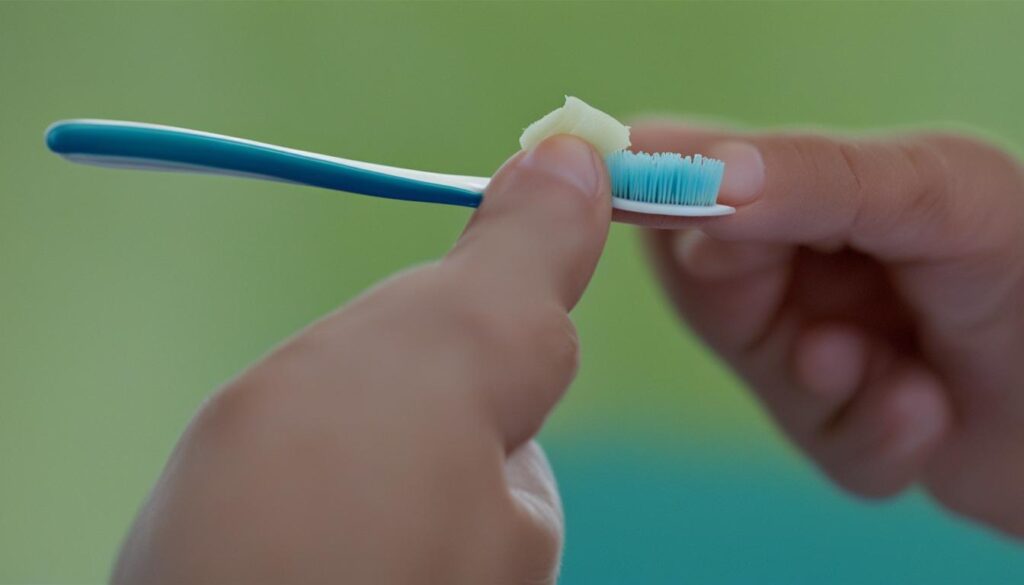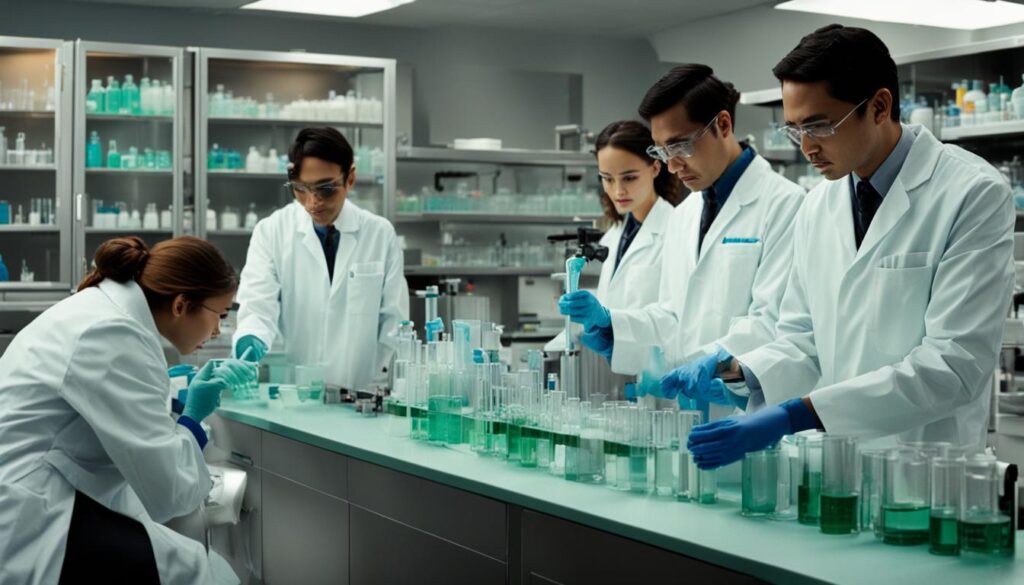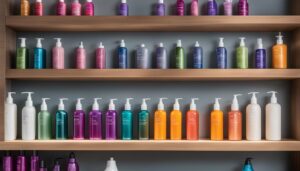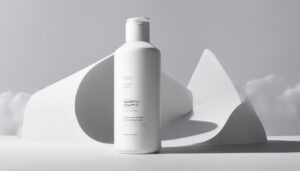Are you a mouthwash brand looking to make a splash in the oral care market? Well, choosing the right mouthwash manufacturer is the key to fresh success! To ensure that your brand stands out and maintains high standards of dental hygiene, it’s crucial to ask your mouthwash manufacturer the right questions. Here are 7 essential queries that will help you understand their effectiveness, benefits, and commitment to oral care products.
Key Takeaways:
- Investigate the effectiveness and safety of your mouthwash manufacturer’s products.
- Ask about the benefits of their mouthwashes for teeth and gums.
- Consider the additional perks, such as enamel-strengthening fluoride and breath freshening.
- Remember, mouthwash cannot replace the need for brushing and flossing.
- Understand potential side effects, such as staining and any associated risks.
How Do Mouthwashes Protect Your Teeth and Gums?
Different mouthwashes use various methods to protect teeth and gums. Some mouthwashes contain antiseptic ingredients like ethyl alcohol, eucalyptol, and menthol, which effectively kill bacteria that your toothbrush or floss may miss. Others utilize chlorhexidine, a potent antibacterial agent that binds to tooth and gum surfaces, preventing bacterial infiltration. Understanding the mechanisms behind mouthwashes’ protective properties can help you choose the most suitable one for your oral health.
When it comes to protecting your teeth and gums, antiseptic mouthwashes play a crucial role. These mouthwashes contain ingredients like ethyl alcohol, eucalyptol, and menthol, which have strong antibacterial properties. By rinsing with these mouthwashes, you can eliminate bacteria that may be hiding in hard-to-reach areas of your mouth, such as between teeth and along the gumline. This helps to maintain a healthy oral environment and prevent issues like tooth decay and gum disease.
Another type of mouthwash that offers protection is those containing chlorhexidine. Chlorhexidine is an effective antibacterial agent that binds to both teeth and gums, forming a protective barrier. This barrier prevents bacteria from adhering to these surfaces, reducing the risk of bacterial infiltration and the development of plaque and tartar. Chlorhexidine mouthwashes are commonly used in professional dental settings and can be beneficial for those with specific oral health concerns.
“Mouthwashes with antiseptic ingredients like ethyl alcohol, eucalyptol, and menthol are great for killing bacteria that your brush can miss.”
It’s important to choose a mouthwash that suits your specific dental needs. If you’re prone to gum disease or have excessive plaque buildup, a chlorhexidine mouthwash may be recommended by your dentist. However, if you’re looking for a more general oral care product, an antiseptic mouthwash can help freshen breath, kill bacteria, and provide a refreshed feeling. Consulting with your dentist can help you determine which type of mouthwash is best for you.
| Mouthwash Ingredients | Protective Actions |
|---|---|
| Antiseptic ingredients (ethyl alcohol, eucalyptol, menthol) | Kills bacteria, freshens breath |
| Chlorhexidine | Binds to teeth and gums, prevents bacterial infiltration |
What Other Benefits Do Mouthwashes Offer?
Aside from their primary function of freshening breath and promoting oral hygiene, mouthwashes provide additional benefits that contribute to your overall dental health. Understanding these benefits can help you choose the right mouthwash that caters to your specific needs.
1. Extra Oral Protection
Mouthwashes offer extra oral protection by providing benefits beyond just the mouth. Some mouthwash brands include enamel-strengthening fluoride in their formulations. Fluoride has been shown to reduce the risk of cavities by remineralizing and strengthening tooth enamel. By incorporating a fluoride-containing mouthwash into your daily routine, you can further enhance your dental health.
2. Combat Bad Breath
Bad breath can be caused by bacteria in the mouth, leading to an unpleasant odor. Mouthwashes effectively eliminate these bacteria, addressing the root cause of bad breath rather than just masking it. By regularly using a mouthwash that targets bacteria, you can enjoy fresh and clean breath throughout the day.
3. Targeted Solutions
Many mouthwashes are specifically formulated to address specific oral health concerns. There are mouthwashes designed to combat gum disease, reduce plaque buildup, and even relieve dry mouth symptoms. By choosing a mouthwash that targets your specific concerns, you can experience a more tailored approach to your oral care routine.
It is important to note that while mouthwashes offer these additional benefits, they should not replace brushing and flossing as the foundation of your oral hygiene routine. Regular brushing and flossing are still necessary for optimal dental health. Incorporating mouthwash as a supplement to your routine can help enhance the effectiveness of your daily oral care efforts.
Why Do Mouthwash Users Still Need to Brush and Floss?
While mouthwash is a valuable addition to your oral care routine, it cannot replace the need for brushing and flossing. Brushing your teeth at least twice a day and flossing once a day are essential for maintaining good oral hygiene. By using a toothbrush and toothpaste, you physically remove food particles and plaque from the surfaces of your teeth. This prevents the buildup of tartar, which can lead to tooth decay and gum disease.
Flossing, on the other hand, reaches the areas between your teeth and along the gumline that a toothbrush cannot. It helps to remove plaque and food debris that can get trapped in these tight spaces. By removing these substances, you reduce the risk of cavities and gum inflammation. Flossing also helps to stimulate the gums and improve blood circulation in the oral tissues.
Before using mouthwash, it is crucial to thoroughly brush and floss your teeth. This ensures that you have removed as much bacteria and plaque as possible, allowing the mouthwash to make direct contact with the oral tissues. By following this sequence, you can enhance the effectiveness of the mouthwash and maximize its benefits for your oral health.
Why Should Mouthwash Be Used After Brushing and Flossing?
Mouthwash is the final step in your oral care routine. It acts as an additional tool to further cleanse your mouth and freshen your breath. By using mouthwash after brushing and flossing, you can take advantage of its antiseptic properties to kill any remaining bacteria in your mouth. Mouthwash can also reach areas that a toothbrush and floss may have missed, providing a more comprehensive clean.
| Brushing | Flossing | Mouthwash |
|---|---|---|
| Removes food particles and plaque from the surfaces of the teeth. | Removes plaque and debris from between the teeth and along the gumline. | Kills remaining bacteria and freshens breath. |
| Helps prevent tooth decay and gum disease. | Reduces the risk of cavities and gum inflammation. | Provides an additional clean and reaches areas that brushing and flossing may have missed. |
Overall, while mouthwash is a beneficial component of your oral care routine, it should not replace brushing and flossing. These preventive dental care practices are essential for maintaining optimal oral health. By combining proper brushing, flossing, and the use of mouthwash, you can ensure that you are taking comprehensive care of your teeth and gums.

What Side Effects Can Mouthwash Cause?
While mouthwash is a valuable addition to your oral care routine, it’s important to be aware of potential side effects. Understanding these side effects can help you make informed decisions about the use of mouthwash and choose the most suitable options for your oral health needs.
Oral Cancer Concerns
There have been studies examining the potential link between mouthwash and oral cancer. Some research suggests that mouthwashes containing ethyl alcohol may increase the risk of developing oral cancer. However, it’s important to note that these studies have not provided conclusive evidence, and the risk is associated with excessive and prolonged use of mouthwash.
“Regular use of mouthwash in recommended dosages has not been shown to significantly increase the risk of oral cancer.”
It is recommended to use mouthwash as directed and consult with your dentist if you have any concerns. They can provide personalized advice based on your individual risk factors and help you choose mouthwash products that are safe and effective for you.
Potential Staining
Another potential side effect of certain mouthwashes, particularly those containing chlorhexidine, is tooth staining. Chlorhexidine mouthwashes may cause yellow or brown stains on teeth, which can be removed during a professional cleaning. If you’re concerned about staining, you can opt for alcohol-free mouthwashes or consult with your dentist for alternative options.
In summary, while there are potential side effects associated with mouthwash use, these risks can be minimized by using mouthwash as directed and consulting with your dentist. Regular dental check-ups and professional cleanings can also help address any concerns or issues related to mouthwash use. Remember to prioritize good oral hygiene practices, such as brushing and flossing, in addition to incorporating mouthwash into your routine for optimal dental health.
| Side Effects | Potential Concern |
|---|---|
| Oral Cancer | Prolonged and excessive use of mouthwash |
| Staining | Chlorhexidine mouthwashes |
Conclusion
Now that you have delved into the world of mouthwash and explored the essential questions to ask your mouthwash manufacturer, you are equipped to make informed decisions for your oral care brand. Remember, your choice of mouthwash manufacturer can make or break the success of your mouthwash brand in the competitive dental hygiene market.
Understanding the protective properties of mouthwashes, such as their ability to eliminate bacteria and prevent bacterial infiltration, will help you choose the most suitable oral care products for your brand. Additionally, considering the extra benefits mouthwashes offer, like enamel-strengthening fluoride and fresh breath, can further enhance your brand’s appeal to consumers.
While mouthwash plays a valuable role in oral care, it should not replace the cornerstone of preventive dental care—brushing and flossing. These essential practices physically remove food particles, plaque, and bacteria, allowing the mouthwash to work more effectively. Prioritizing brushing and flossing alongside the use of mouthwash will ensure comprehensive dental hygiene.
Lastly, be aware of any potential side effects associated with mouthwash use, such as staining or possible risks of oral cancer. Choosing a reliable mouthwash manufacturer who prioritizes safety and offers high-quality production and distribution will give your brand the competitive edge it needs in the dynamic market of oral care products.
FAQ
What questions should every brand ask their mouthwash manufacturer?
Every brand should ask their mouthwash manufacturer about the effectiveness, benefits, and safety of their oral care products, as well as their commitment to dental hygiene.
How do mouthwashes protect your teeth and gums?
Mouthwashes use various methods to protect teeth and gums, such as containing antiseptic ingredients like ethyl alcohol, eucalyptol, and menthol, which effectively kill bacteria. Others use chlorhexidine, an antibacterial agent that prevents bacterial infiltration.
What other benefits do mouthwashes offer?
Mouthwashes can offer extra oral protection, including enamel-strengthening fluoride to reduce cavities and freshening breath by eliminating oral bacteria that cause bad breath.
Why do mouthwash users still need to brush and floss?
While mouthwash is valuable, it cannot replace brushing and flossing. Brushing physically removes food particles and plaque, while flossing cleans areas that a toothbrush cannot reach.
What side effects can mouthwash cause?
Mouthwashes, particularly those containing ethyl alcohol, have been studied for their potential to increase the risk of oral cancer. However, no conclusive evidence supports this claim when used in recommended dosages. Chlorhexidine mouthwashes may cause tooth stains, which can be removed during a professional cleaning.
Shay labs is here to help!
Shay Labs is a trusted name in the cosmetic manufacturing industry. With years of experience and a strong commitment to quality, Shay Labs offers a wide range of private label manufacturing services for beauty, skin, hair, pet, and personal care products. Their state-of-the-art facilities and dedicated team ensure that every product is created with the utmost care and attention to detail. Contact Shay Labs today to discuss your next project. We’re here to help.
Recommended Reading
Guide: How to Find and Vet a Mouthwash Private Label Supplier





